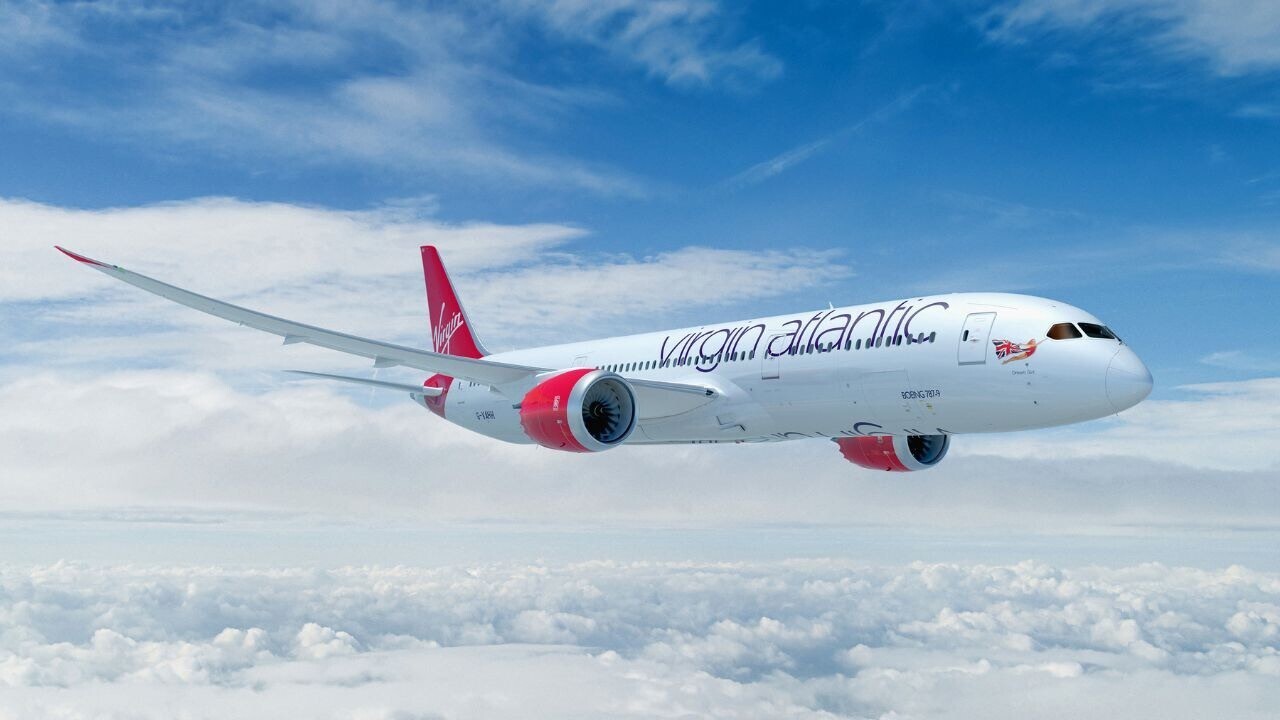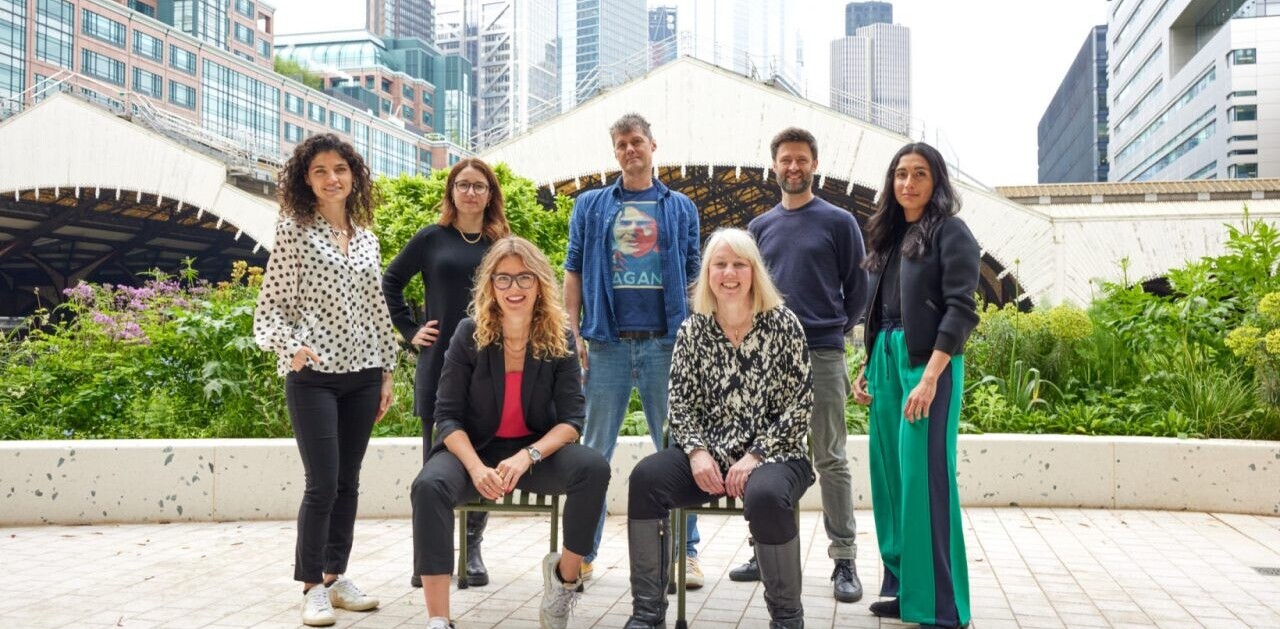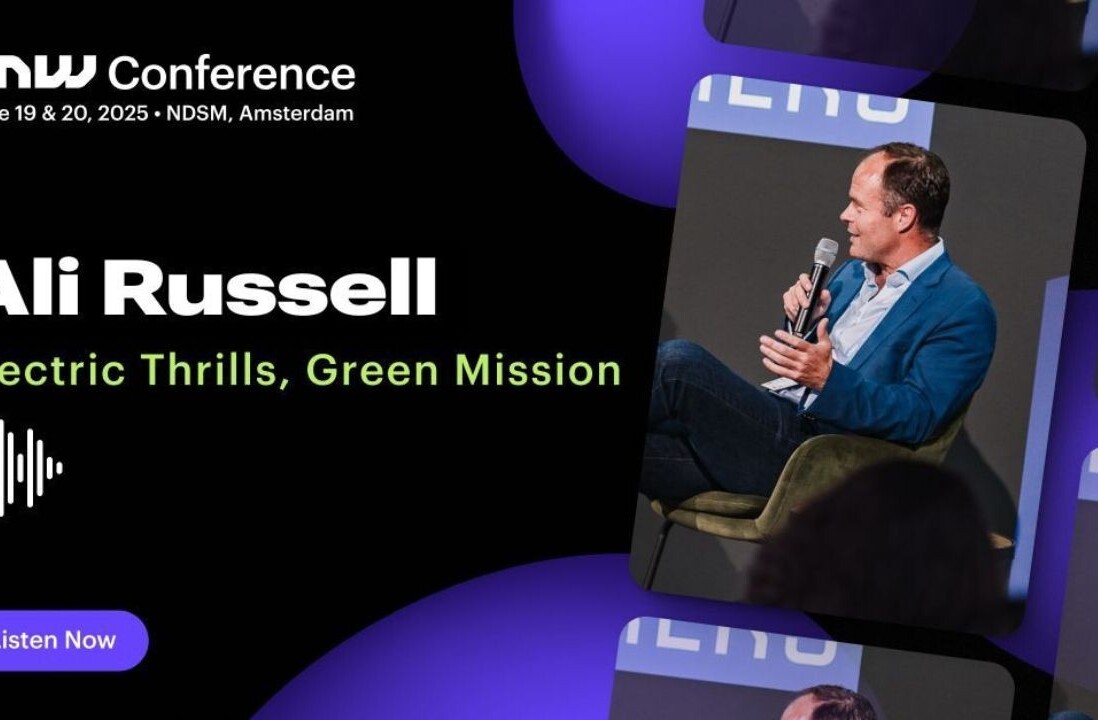
The world’s first transatlantic flight with 100% sustainable aviation fuel (SAF) has been attacked as “greenwashing” by critics.
The Tuesday trip from London to New York on a Vrigin Atlantic 787 has been celebrated by airlines and politicians as a “milestone” in the journey to net zero. Scientists and climate campaigners, however, have poured scorn on these claims.
Opinions are divided over the potential of SAFs, which derive from various alternatives to fossil fuels. For Tuesday’s flight, the SAF was made primarily from waste fats and plant sugars, according to a Virgin Atlantic factsheet [PDF] shared with TNW. The airline expects the resulting carbon emissions to be 70% lower than those produced by petroleum-based jet fuel.
Shai Weiss, Virgin Atlantic’s CEO, said the Boeing 787 test flight would prove that SAF “can be used as a safe, drop-in replacement for fossil-derived jet fuel.” She added that it was “the only viable solution for decarbonising long-haul aviation.”
The reactions from the UK government — which partly funded the fight — have been even more optimistic. Prime Minister Rishi Sunak praised the journey as “the first net zero transatlantic flight,” while the Department for Transport declared that it was “ushering in a new era of guilt-free flying.” Both claims were promptly pilloried by environmental groups.
Cait Hewitt, policy director of the Aviation Environment Federation (AEF), said promises that the trip will take us closer to “guilt-free flying” were “a joke.” She notes that SAFs currently comprise around 0.1% of global aviation fuel — and will be extremely hard to scale sustainably.
“Trying to scale up production of alternative fuel, using the waste products of fundamentally unsustainable industries like intensive animal agriculture, or using unrecyclable plastic — as the UK government is planning to do – is hardly a sustainable solution,” Hewitt told TNW.
She added that SAFs also emit as much CO2 as kerosene at the tailpipe. This is because they’re still hydrocarbon fuels and produce the same volume of CO2 emissions as kerosene when combusted. According to the AEF, any CO2 reduction will be “net” savings made during the production phase — as with a carbon offset.
“Linking it to the idea of ‘guilt-free flying’ is deeply misleading and risks setting back a proper, honest discussion about how much we can fly while achieving climate goals,” Hewitt said. “If the public is led to believe the industry has found the solution to green flying, that could be environmentally harmful.”
The AEF’s concerns were echoed by Stay Grounded, a global network of climate crisis campaigners. The group described the flight as “greenwashing.”
Stay Grounded insists that SAF isn’t a net zero flight or even sustainable, as it relies on vast quantities of biofuels and inefficient use of renewables. The group also lambasted SAF as “wasting biomass and renewables on transport for the rich.” It said a more fitting term for the power source is “Fossil Fuel Substitutes” or “Agrofuels.”
“[The] fuel has been produced via a process which is a technological dead-end,” Finlay Asher, a former aerospace engineer at Rolls Royce and a member of Stay Grounded, said in a statement. “It can’t be sustainably scaled beyond a few percent of existing jet fuel use.”
Until truly green flying is possible, both the AEF and Stay Grounded say the only sustainable option is to dramatically reduce air travel. According to the aviation industry, that simply isn’t realistic.
The sector has also pointed to the social and economic benefits of SAF.
Like many airlines, Virgin Atlantic wants SAF to account for 10% of aviation fuel by 2030. The company predicts that this will contribute around £1.8bn (€2.1bn) in Gross Value Added to the UK, as well as more than 10,000 jobs.
Virgin Atlantic does, however, agree with the campaigners on one point: reaching SAF production at scale remains immensely challenging. To achieve this goal, the airline is calling for more government investment.
Get the TNW newsletter
Get the most important tech news in your inbox each week.




